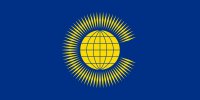The Commonwealth Day is the annual celebration of the Commonwealth of Nations held on the second Monday in March. It is an opportunity to promote understanding on global issues, international co-operation and the work of the Commonwealth’s organisations, which aim to improve the lives of its citizens.
The aim of Commonwealth Day is to celebrate the unity, diversity and linkages of the modern Commonwealth and foster greater understanding of the Commonwealth’s achievements and role.
The modern Commonwealth was established in 1949 as an association of free and equal sovereign states which had been part of the British Empire but were now independent and, in the case of India and Pakistan, on the verge of becoming Republics. There are now 53 member states, with a combined population of 2.2 billion (approximately 30% of world population). Rwanda, the newest member joined in 2009, despite having no direct link to Britain. The Gambia left the Commonwealth in 2013, Zimbabwe withdrew in 2003 and Fiji is currently suspended.
The Commonwealth is an association of governments and peoples, built around shared language, institutions, challenges, aspirations and values. Unlike most other international associations, the Commonwealth works on a consensus model and membership is voluntary, predicated primarily on a country’s commitment to upholding shared values and principles, including the protection and promotion of human rights, democracy and the rule of law.
Read more information on these websites :



